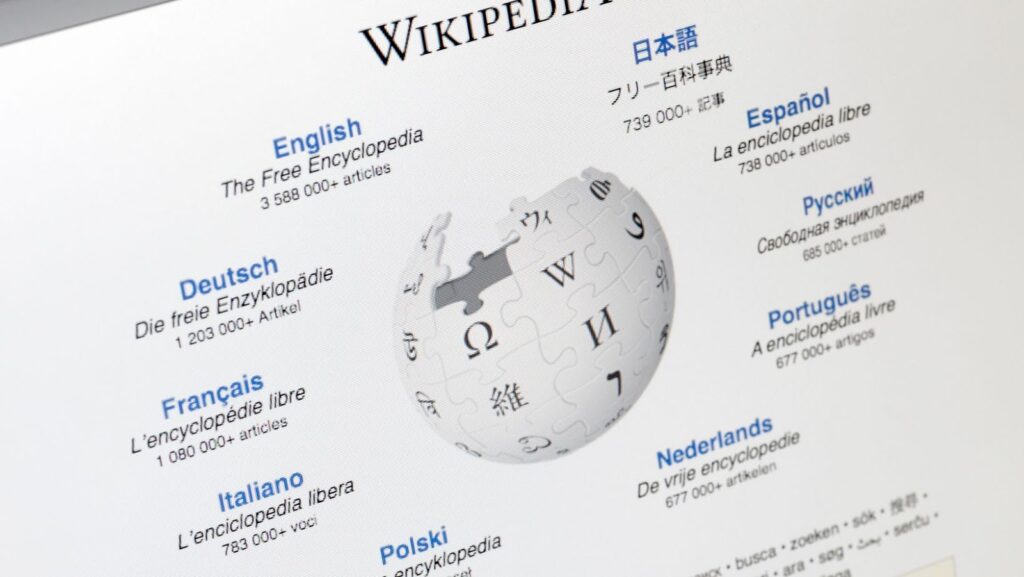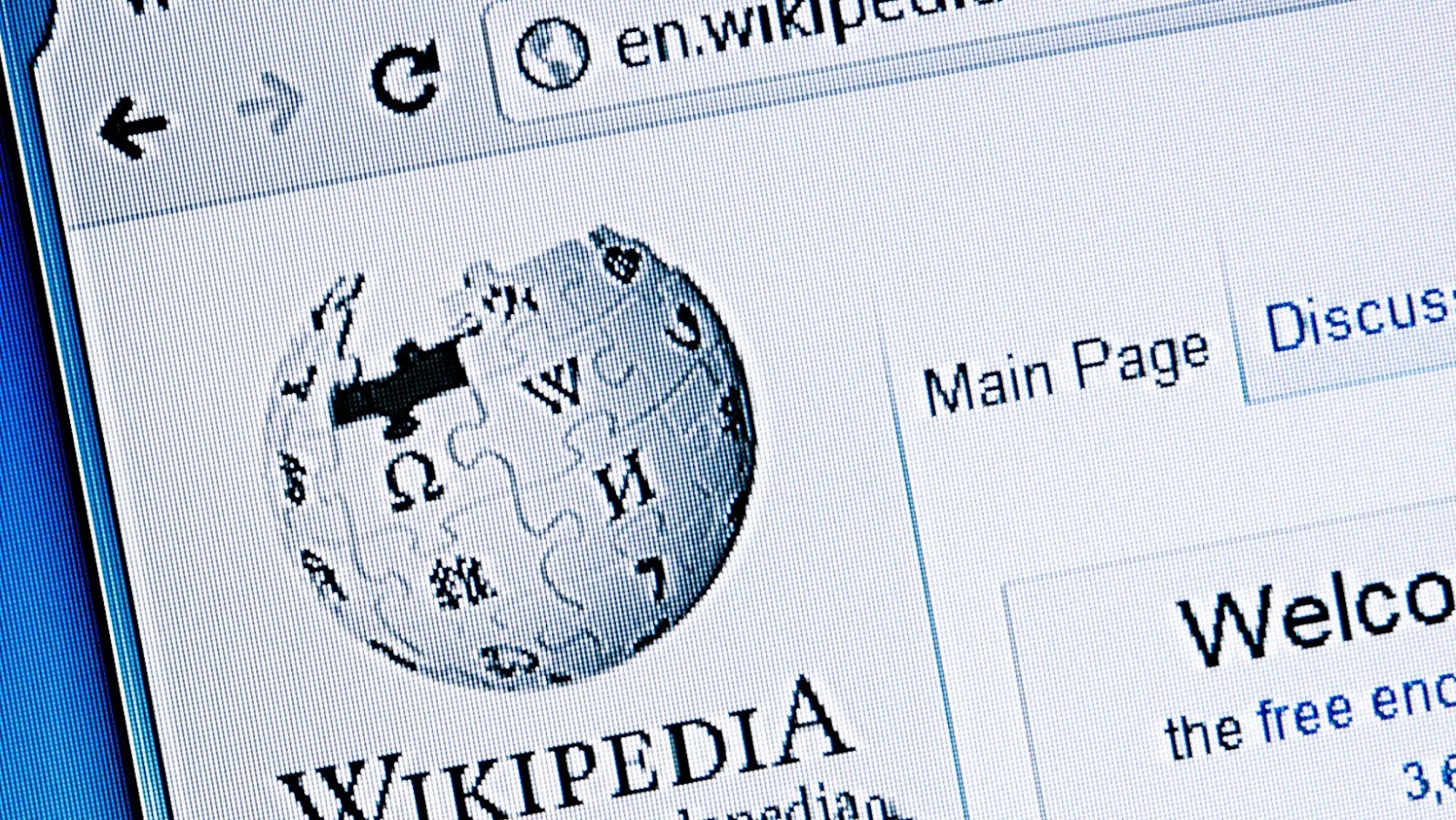
The arrest of the top Wikipedia editor, Bharat Matrimony, in India last week has resulted in significant outcry from the Wikipedia community.
Matrimony was arrested by the Central Bureau of Investigation (CBI) in India on fraud and corruption charges. The news of his arrest has left many in the Wikipedia world wondering why Matrimony was arrested and what effect this will have on Wikipedia’s efforts to maintain a neutral and accurate source of information.
In this article, we will explore the details of the arrest and its potential implications for the future of Wikipedia.
Why was the top wikipedia editor arrested?
On October 1st, 2019, the arrest of Wikipedia co-founder Jimmy Wales rocked the world of journalism. It instantly sparked a flurry of news media coverage and was widely discussed on social media. Unfortunately, the arrest left the future of Wikipedia uncertain and the public was left to wonder what would be next for the popular open educational platform.
The reason for Jimmy Wales’ arrest remained a mystery until a press conference later in October, when police revealed that Wales had been arrested for his involvement in a wide-ranging international counterfeiting ring. The revelation sent shock waves throughout the internet as Wales had been considered an important figure in the open knowledge movement and was highly respected by many.
The scandal surrounding this arrest immediately impacted Wikipedia’s reputation due to associated negative publicity, which created confusion and distress among users. This caused existing users to become uneasy about continuing to contribute their knowledge or even recommending the platform to others in fear that similar incidents could occur in future. Additionally, it prevented newer users from beginning their contributions due its negative connotations, especially if their contribution would be at risk of litigation due to another criminal occurrence.
Impact on Wikipedia
The arrest of a top Wikipedia editor has raised questions about how this will impact Wikipedia and its operations. In addition, the arrest has highlighted the potential risks of allowing users to edit articles without proper checks.
In this article, we will discuss the potential implications of this arrest on Wikipedia and the reasons why it happened in the first place.
Loss of trust from users
The arrest of two Wikipedia editors for espionage has caused a great deal of concern among many users, who are now questioning the platform’s security. Furthermore, malicious and intentional actions taken from inside the community caused some users to lose faith in the Wikipedia platform and its editing process.

Leading Wikipedians have expressed their shock and disappointment regarding these events, which have tarnished the reputation of online encyclopaedia’s most active editor pool. Their attempts to ensure integrity on Wikipedia content have become more difficult, as trust between editors has been damaged by this incident. Many Wikipedians are reluctant to collaborate due to fear that individuals or organisations might be using vested interests or agendas when editing entries.
The news has also caused a decline in user morale, with editors worried similar incidents could occur. Furthermore, user participation over time may suffer depending on whether users become aware of any changes implemented by WikiMedia Foundation as a result of this scandal (such as tighter security or changes in user authentication methods). In addition, if users decide that their time is better spent elsewhere given other new tools (e.g., social media), then Wikipedia’s growth could suffer in terms of entries content quality and quantity.
Overall, it is clear that this incident has harmed trust from within the community and may lead to further implications for user activity and general use of Wikipedia going forward.
Potential damage to Wikipedia’s reputation
The potential damage of this arrest to Wikipedia’s reputation is considerable. In recent years, the website has worked hard to improve its public perception and establish itself as the premier source of accurate, reliable information. However, in light of these recent developments, the trustworthiness of Wikipedia’s content may be questioned among users unaware that an individual was arrested and charged with a crime related to their work on the website.
In addition to potentially damaging its credibility as an information source, this arrest could also put doubt in the minds of users who regularly contribute to the website. Suppose they believe law enforcement authorities may obtain their private data (including IP addresses) due to their editing activities. In that case, they may opt out of contributing their knowledge and expertise in good faith. This could harm Wikipedia’s role as an open-access encyclopaedia, since fewer contributors would mean lower quality content overall.
Finally, this incident could also provoke controversy around some of Wikipedia’s policies regarding user accounts and privacy settings. For example, other Contributors or readers may question why third-parties are allowed access to particular articles or pages if there is no guarantee that those individuals will act responsibly regarding protecting user data or making any edits within the scope of Wikipedia’s community guidelines.
Disruption of editing process
The Indian government’s arrest of a Wikipedia editor potentially affects the world’s largest online encyclopaedia’s free and open editing process. In addition, the arrest has left other editors concerned about how their contributions are moderated about volatile political topics.
Since its creation, Wikipedia has relied heavily on global collaborations of volunteers worldwide. These volunteers have become crucial in checking and maintaining accuracy for entries on various topics. Volunteers also help maintain a neutral point of view, one of the key components that make Wikipedia an independent source for information.

The events surrounding this incident pose serious questions to editors worldwide – given how this situation was handled, will volunteer editorship be allowed to remain open and impartial? With conflicting interests at play, including what contributors can consider censorship, will this affect how they approach their work? Finally, what kind of impact will this incident have over long term relationships with other contributors?
Without access to full disclosure regarding this specific case, it is unclear how such events could be avoided in future coupled with the amount of trust put in others to allow unmoderated content onto Wikipedia without fear nor favouritism. Questions arise on how volunteer and oversight collaboration can prevent similar controversies and build public trust during highly controversial incidents that present complex ethical dilemmas within dispute resolution processes.
Effects on Other Platforms
The arrest of the top wikipedia editor has had far reaching effects not only on wikipedia, but other platforms as well. It has raised questions about the reliability of information sources, the trustworthiness of wikipedia, and the security of user data on the internet.
Let’s delve into the implications of this arrest on other platforms.
Increased scrutiny of other online platforms
The arrest of Julian Assange, founder of the influential website Wikileaks, has placed an intense spotlight on current editorial oversight procedures employed by other popular online platforms. Following significant public pressure and scrutiny, social media companies such as Facebook, YouTube and Twitter respond to this renewed attention by enforcing stricter content regulations.

This increased scrutiny impacts conventional journalistic standards and how news is disseminated online. Content editors have responded to this new situation by enhancing their existing evaluation systems with more rigorous guidelines for what type of material should be allowed on their platforms. For example, many sites are now implementing a system of human frontline evaluators to rapidly detect inappropriate or illegal material before it reaches the public. This level of proactive control is new for many platforms who have relied primarily upon algorithmic evaluation for content filtering.
Additionally, social media networks like Facebook have recently proposed a Content Governance Board that would offer advice related to content distribution on their platform. Not only will they adjudicate appeals from users regarding content decisions made by the company’s evaluators, they will also be tasked with generating company-wide policy suggestions designed to ensure that only appropriately sourced and verified content is published on their site.
Though there remains much uncertainty surrounding how the increased internal evaluation requirements adopted by other platforms in response to Julian Assange’s arrest may ultimately shape our experience interacting with these services going forward, one thing remains certain; they will significantly affect what information businesses distribute as well as how users are allowed access it across many different types of digital spaces in the coming years.
Impact on other online communities
Since the arrest of Julius Deïra on charges of cyber-espionage, the effects have been felt across the internet, particularly in online communities such as Wikipedia. The arrest has polarised opinions between members and caused divisiveness about Deïra’s motivations and intentions. It has also raised important questions about online security and the ethical use of technology.
As a result, discussions about Deïra’s breach have spilled over into other online forums such as Facebook and Reddit. This has exposed a broader audience to the events surrounding his arrest and caused many Wikipedia users to express their personal opinions on the matter. This can disrupt content-rich communities such as Wikipedia, leaving moderators needing to intervene to maintain harmony.
The impact is not confined to within the website either; general public perception of Wikipedia is also likely to be affected by these events as they play out in public discourse. Given that this type of vandalism had never before been seen before there’s no telling how bad it might get for one of the world’s leading sources of knowledge if left unchecked; this may lead more people than ever before questioning its accuracy and reliability, potentially damaging its reputation irreversibly among those who are unaware that this was an isolated incident rather than part of a widespread problem inside Wikipedia itself.
tags = accused of editing Wikipedia articles about Russia’s invasion of Ukraine, leaked information in the Telegram channels, Bernstein’s purported Wikimedia username, Russian Wikipedia channel on Telegram, mark russian wikipedia antirussian telegramsong theverge



